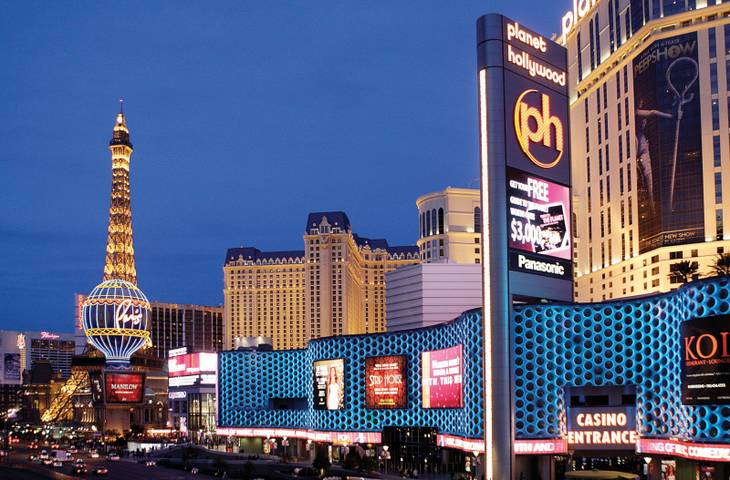Sun Coverage
When Shari Hodges worried she was playing the slots too much, she did the responsible thing: she allowed her name to be put on a list of people who voluntarily ban themselves from casinos.
And for that decision 10 years ago in Missouri, she’s afraid she’ll be arrested for trespassing if she tries to see Celine Dion in concert at the Colosseum at Caesars Palace.
The reason for her anxiety is a letter she received in 2010 from Harrah’s Entertainment warning her not to go into any of the company’s properties.
“The problem is when I signed up in Missouri, I didn’t know that I was signing up to be banned from every Harrah’s property in the country,” Hodges, 65, says. “I don’t even know which casinos they own.”
Asking a casino to ban oneself — “self-exclusion” — is a gray area in the gaming industry. Different states have different policies, and different companies within those states treat self-exclusion in different ways.”
There’s no self-exclusion list in Nevada, although some casino companies have self-exclusion policies as part of their responsible gambling programs overseen by the state Gaming Control Board. Among them are Caesars Entertainment, operators of Caesars Palace. Caesars Entertainment formerly was known as Harrah’s Entertainment.
But a spokesman for Caesars said Hodges has nothing to worry about.
“The only way we would even know she’s on the property is if she gambled and used her Total Rewards card,” spokesman Gary Thompson said.
Total Rewards is Caesars’ loyalty card program, used by customers to accumulate credits that can be used for entertainment, dining and hotel rooms.
Thompson said Hodges wouldn’t be bothered by casino personnel as long as she doesn’t gamble. She’s free to see shows, eat at restaurants and go shopping.
Hodges isn’t so sure.
After leaving Missouri and moving to Mesa, Ariz., she received a letter from the Harrah’s Ak-Chin Casino and Resort, a tribal casino in suburban Phoenix. It named all of the company’s brands and read: “Should you enter any part of such property, you may be subject to arrest for trespassing and other violations.”
The letter also warned that any money Hodges won would be forfeited and donated to a government or nonprofit group focused on responsible gambling research and treatment.
Hodges said she read about a wheelchair-bound patron arrested for trespassing in an Illinois casino three years ago.
Mark Lipparelli, chairman of Nevada’s Gaming Control Board, said Caesars is among the casino companies that aggregate self-excluded patrons on a single list. Caesars Entertainment owns almost 40 properties nationwide.
Self-exclusion isn’t treated the same way as Gaming Control Board exclusion or being listed on the so-called “black book” that bans known cheats, people convicted of crimes and other serious offenders from casinos. In the case of the 33 people on that list, licensees are required to notify authorities and prevent their admission to any area of casino property, including hotel rooms, bars, showrooms and pools.
LeAnn McCarthy, a spokeswoman for the Missouri Gaming Commission, said Hodges can request to be taken off the self-exclusion list.
Under a policy change approved by commissioners last year and implemented March 31, people who asked to be included on the list can petition to be removed from it after five years.
Missouri in 1996 became the first state to have a self-exclusion list. Its rules state that people who enter any of the state’s casinos can be charged with misdemeanor criminal trespassing. The list applies only to Missouri’s 12 casinos but is open to both in-state and out-of-state patrons.
Ten other states have adopted similar programs, which are designed to address problem gambling.
McCarthy said there are more than 14,000 people on Missouri’s self-exclusion list, and more than 2,500 of the nearly 11,500 eligible have petitioned to be removed.
But Hodges remains confused about why Caesars would enforce that ban since the rule applies only to Missouri.
“I wouldn’t think a rule in Missouri could be enforced in other states, but Harrah’s (Caesars) does it,” Hodges said. “All I wanted to do was address a little riverboat gambling problem I was having, but I think I found a really good way to cure gambling forever – arguing with Caesars Entertainment’s corporate office. Do that for a week and you’ll never want to visit Las Vegas or gamble again.”
Hodges has yet to book her Celine Dion tickets.
